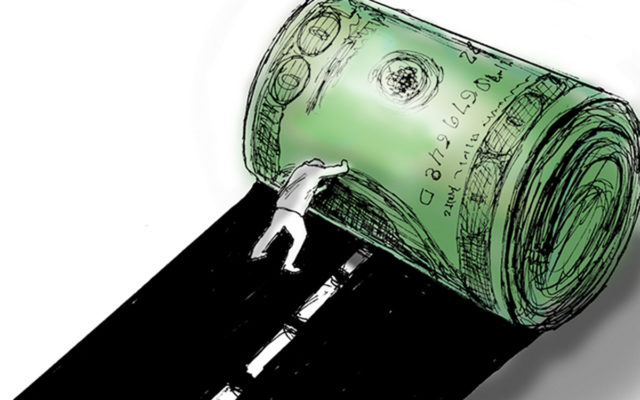
Transportation work plan will stretch every dollar and prepare Maine for the future
By Bruce A. Van Note
Today, the Maine Department of Transportation is releasing the latest edition of our three-year work plan, which outlines the numerous projects we intend to undertake over the coming three years. With the COVID-19 pandemic still very much affecting our lives, and with financial uncertainty resulting from the pandemic still high, we are focusing on squeezing maximum value from every existing dollar and being agile enough to pivot to what the future may bring. Much of what the department is able to accomplish depends on getting the pandemic under control and the prospect of additional federal funding, but no matter what 2021 brings, history has shown that our dedicated team will rise to the occasion.
In 2019, a nonpartisan Blue Ribbon Commission — made up of legislators, transportation professionals and other stakeholders — was specifically formed to recommend transportation funding solutions. That commission found that Maine’s unmet transportation need is more than $230 million per year, a shortfall that was calculated after assuming that state bonding of $100 million or more will continue every year. While the commission recommended a solution, it released its final report on March 9. One week later, Maine found itself in the grips of the COVID-19 pandemic.
The Department of Transportation responded to the sudden changes by shifting to business unusual — a term indicating that we needed to keep doing our work while acknowledging that everything is different. During these extraordinary months, we continued to deliver at an extraordinary rate. In 2020, we advertised our capital projects to bid at an on-time delivery rate of 94 percent — a record-setting figure. We also took advantage of the opportunities provided by lower traffic volumes and more-competitive construction bids by adding projects. This level of production represented a silver lining on the dark cloud of COVID-19. We were able to make much-needed improvements to infrastructure while providing good-paying jobs to Maine people.
As we look ahead to 2021, our primary goal must be defeating the virus — improving the health of Mainers and the health of our state’s economy. Still, we are planners. We must look years down the road if we are going to live up to our mission to support economic opportunity and quality of life by responsibly providing our customers with the safest and most reliable transportation system possible, given available resources.
Right now, there is uncertainty associated with each of the three legs of the department’s funding stool. State Highway Fund revenues have dropped as a result of people traveling less. The federal government, under the new administration and Congress, could take new action to address federal transportation funding. Further, discussions about upcoming bonds, a prudent funding option while interest levels remain at historic lows, will begin soon.
Even with this uncertainty, we are releasing the latest edition of our three-year work plan for calendar years 2021, 2022 and 2023. It is based on many assumptions, but those assumptions have been advised by the hundreds of years of cumulative engineering and policy experience at the Maine Department of Transportation. This work plan contains 2,180 work items with a total value of $2.71 billion. This list of work is diverse in terms of geography, mode and size.
This work plan includes paving work, bridge replacements, culvert improvements, road striping, new pedestrian and bicycle facilities, and investments in our ferry service. No matter the size or scope, each of these projects is important because it will impact our customers — the people who rely on Maine’s vast infrastructure network. This work plan also aims to expand partnership programs, support existing and emerging businesses, refocus investment in Maine villages, enhance planning and communication, and confront climate change. The plan will be available on our website, mainedot.gov.
Transportation is fundamental to our safety, economic prosperity and quality of life. It is fundamental to everything we do and who we are. We face big challenges in the near term as we defeat the virus, and in the long term, we have great opportunities to make a real difference for the people of Maine after we resolve the chronic funding challenge. We stand ready to maximize these opportunities as we move forward together.
Van Note is Maine’s transportation commissioner.